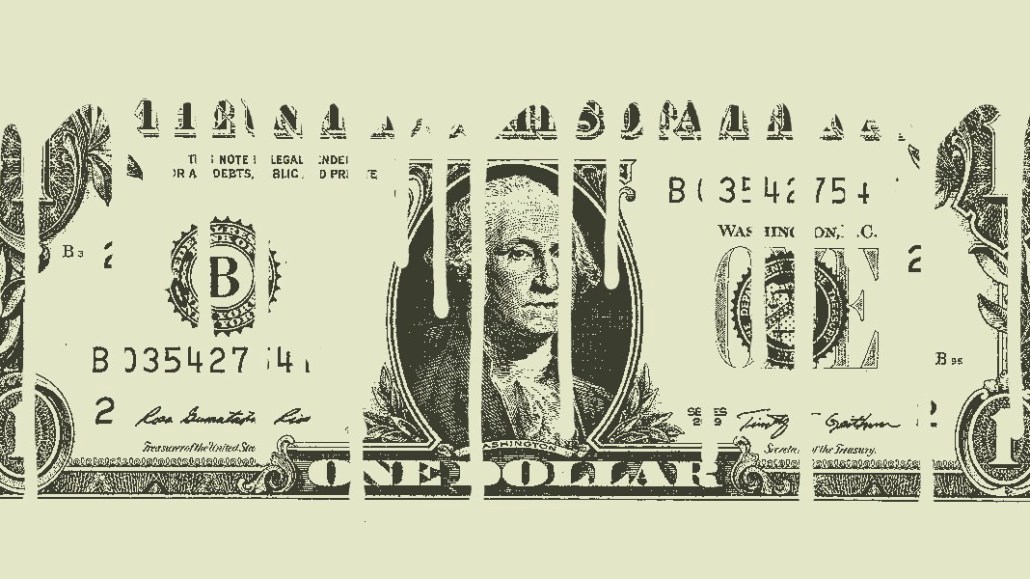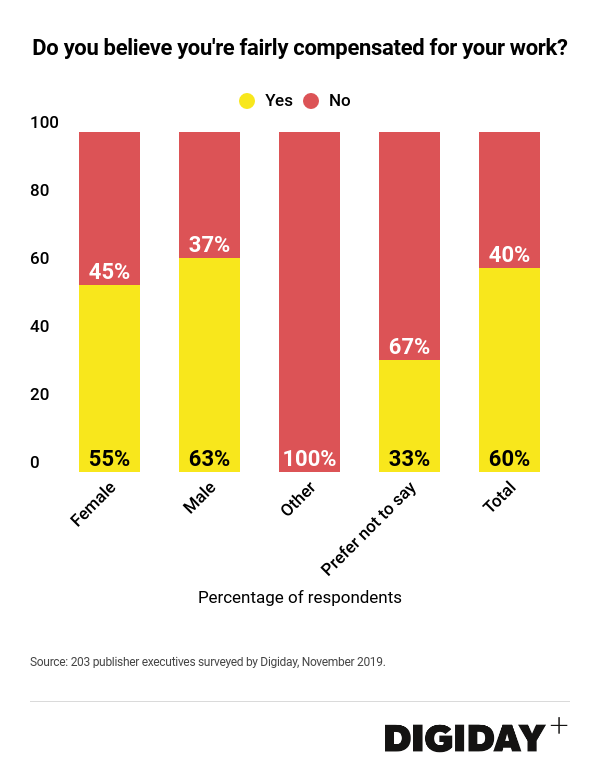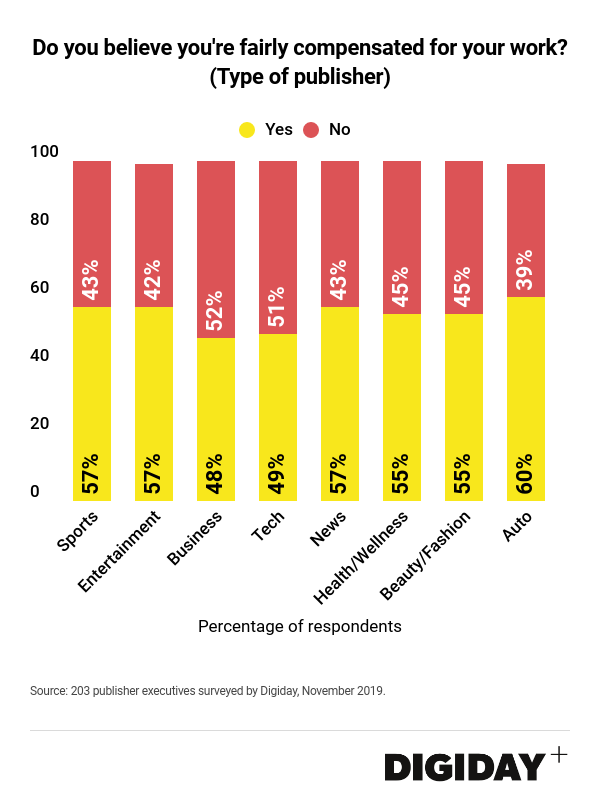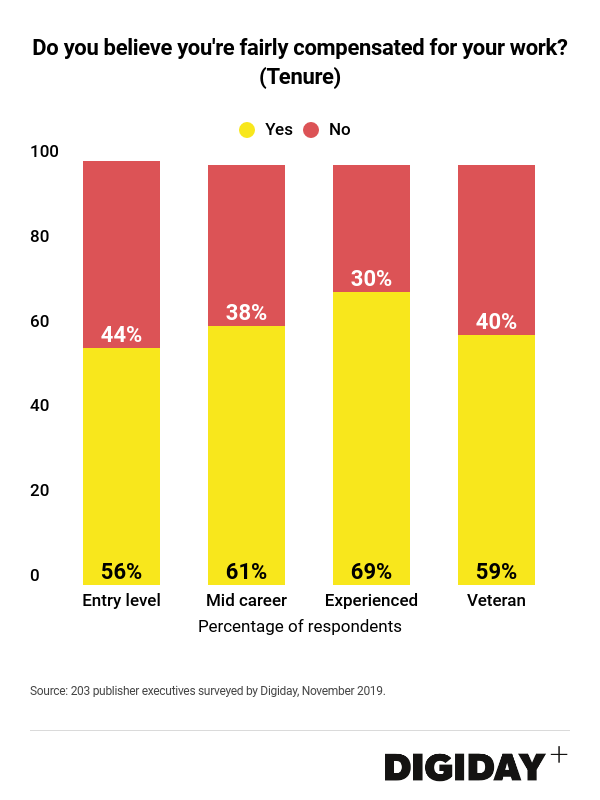Save 50% on a 3-month Digiday+ membership. Ends Dec 5.
Digiday Research: 40% of publishing employees don’t think their compensation is fair

This research is based on unique data collected from our proprietary audience of publisher, agency, brand and tech insiders. It’s available to Digiday+ members. More from the series →
The majority of employees working in publishing believe they are fairly compensated for their work — but just barely.
Digiday Research surveyed 203 people working in publishing to ask about work, compensation and culture. Overall, 60% of respondents said they believed they were being fairly paid for the job they did. However, the results started to differ when broken down by gender.
Fifty-five percent of female employees believe their compensation is fair, compared to 63% of male employees.
 Of course, the type of publishing you’re involved with matters. Traditionally, roles in specialized, niche sectors have paid higher — and, are therefore, more likely to be seen as better places to get fairer competition.
Of course, the type of publishing you’re involved with matters. Traditionally, roles in specialized, niche sectors have paid higher — and, are therefore, more likely to be seen as better places to get fairer competition.
Technology and business publisher employees were slightly more likely than others to say that their compensation wasn’t fair. Comparatively, sports and entertainment, news, health, beauty and automotive focused publishers were likelier to say their compensation was fairer.
Compensation mostly rises as you get more experience, and the people most likely to think they were unfairly compensated were entry-level — those Digiday classifies as between zero and four years of experience. About 44% of them think they are not compensated fairly, compared with 38% of mid-career (five to 14 years) employees, and 30% of experienced (15-19 years) employees.
Ad position: web_incontent_pos1
More in Media

What publishers are wishing for this holiday season: End AI scraping and determine AI-powered audience value
Publishers want a fair, structured, regulated AI environment and they also want to define what the next decade of audience metrics looks like.

Digiday+ Research Subscription Index 2025: Subscription strategies from Bloomberg, The New York Times, Vox and others
Digiday’s third annual Subscription Index examines and measures publishers’ subscription strategies to identify common approaches and key tactics among Bloomberg, The New York Times, Vox and others.

From lawsuits to lobbying: How publishers are fighting AI
We may be closing out 2025, but publishers aren’t retreating from the battle of AI search — some are escalating it, and they expect the fight to stretch deep into 2026.
Ad position: web_bfu

